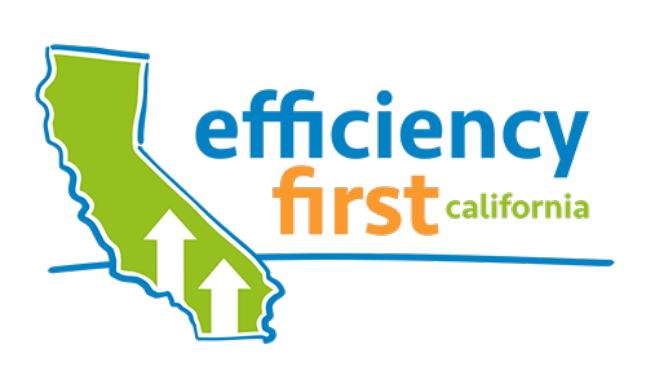Posted by Charley Cormany, EFCA Executive Director
If you are like most contractors, insurance is something you think about once a year at renewal time. That’s what I did for years until I had a rude awakening. After a workers compensation audit, I was left with a $140,000 bill because we had a stronger year than forecasted.
Why had I not seen it coming? Why didn’t my insurance broker warn me of the possibility? When I asked my broker, she was apologetic but offered a lot of too-little-too-late advice. I started looking for a new insurance broker.
My experience with buying insurance got a lot better when we found a great broker. You need to find one who will go to bat for you and limit your exposure. Getting a good broker was key, but here are some of the nuances of insurance that I have learned.
1. Have a Good Relationship with Your Insurance Broker
Like any industry, it is about who you know. Insurance brokers that are well-connected, not underwriters, can get you better deals. We ended up going with a broker from one of the largest insurance companies.
Our broker wasn’t just good at hunting down good deals. They also helped fill out paperwork and helped us strategize for the future. If you don’t have a good business relationship with your insurance broker or they have never made recommendations for how to lower your costs, you should look around for someone new.
2. Don’t Pay the Same Premium for Every Worker
Educate yourself on how workers’ compensation premiums are calculated. If all of your employees are lumped into one classification then you are throwing money away. Different classifications have different risk factors and risk factors are directly related to premiums.
So if you have one crew that only does HVAC and another crew that only does insulation, they should each have their own workers comp classification. The insulation crew will cost much less to insure.
Besides different premiums for different risk factors, premium levels can also be affected by different salary levels. But it works in an opposite way than you’d expect.
For example, an HVAC employee earning over $27 an hour will cost less to insure than an employee earning less than $27 per hour. So much less that if you pay an employee $25 an hour, raising their wage to $27 an hour will cost the same out of pocket when you factor in workers compensation costs. Wouldn’t you rather put extra money in your employee’s pocket than your insurance company’s?
3. Don’t Get Stuck in a State Insurance Fund
When you first opened for business, your only option for workers’ comp was probably a state fund. But just because there wasn’t a choice at first, it doesn’t mean that there won’t be other choices later. State funds are often the most expensive insurance available and, in my experience, their services among the worst. If you’ve been in business for at least three years, you should start to shop around. A good broker will help.
4. Look for Extra Perks
Some insurance companies offer perks so you will buy insurance from them. For example, we had professional liability insurance with a company that threw in free Human Resources consulting. When we revamped our HR and employee manuals, we handed them over to them for review. They provided numerous hours of free consulting helping us make sure that we were up to date on all the rules and regulations. Ask your broker if there any add-on services available that are free or low-cost.
5. Watch Out for Small Claims
Of course, the best way to keep your workers’ compensation cost down is to avoid injuries. Not only does the size of the claim matter, but also the number of claims you file each year.
As an employer, you are required to give a compensation claim to an employee whenever he or she is injured. But if you allow your employees to make a claim each time they receive minor first aid it can add up. If you can send them to a clinic and pay out of pocket, you should do it. Overall, it will end up costing much less because of lower premiums in the following year.
Be extremely careful that you are following the law, though. You’ll want to stay on the right side of the rules, but a bunch of minor claims is just as much of a concern as one large claim.
6. Know What You’re Covered For
When you sit down and talk with your insurance broker, understand exactly what your business is covered for and what is not covered for. There are many types of insurances and it’s good to know the details of all of them. You don’t want to be surprised when you’re trying to file a claim that something wasn’t covered.
For example, property insurance may cover tools that are in your office or on a job site, but not in vehicles. It would be a bummer to find that out after a bunch of tools were stolen out of a van parked overnight at the office that, in this case, you weren’t covered.
7. Don’t Neglect Safety Training
Another way to keep workers’ compensation claims down is to take safety training seriously. Contractors are required to have safety meetings every ten working days. You should focus on topics about where you think there might be dangerous or hazardous situations for your team and make sure they understand the safety precautions they must follow. You need to have all your employees sign documents stating they received safety training and safety rule updates.
For example, roof installation crew members need to be in a harness if the house is more than one story. Make sure they receive training on how to wear the fall protection gear and have them sign a form telling them that they are required to wear it. If something were to happen, you are in a much better position to prove that your employee was informed prior to being in a compensation claim accident. California law is in favor of employees, and unless your paperwork and protocols are immaculate, you risk getting sued by a disgruntled employee.
8. Offer Severances
Your employees themselves are your greatest liability. My broker told me that the employee lawsuits of today are like the family ambulance chasing lawsuits of yesterday. Even if you’ve done everything perfectly you still might have to pay for a lawyer. So, other than treating your employees well and making sure you’re following employment law, what else can you do? You are most likely to be sued right after you have let go of a worker. One option is to offer severance pay under the condition of signing a release that they have not been harmed by the company. It can offer a lot of protection.
First and foremost, a good insurance broker will help you mitigate risks and reduce costs. But knowing some of the nuances can help you at renewal time and throughout the year.
What’s your experience with insurance? Any tidbits you’d like the share?
Image from iStockphoto.
About the Author
Hello, everybody, my name is Ori Skloot, the president of Advanced Home Energy and a Board Member at Efficiency First California. I’ve been in the home performance industry for about 10 years. Recently, though, at Advanced Home Energy, we chose to transition away from single-family home performance work. It was a bittersweet decision but it doesn’t mean my time selling and completing those upgrades wasn’t time well spent. I have learned a lot over the years and I want to share some of my knowledge and experience with the EFCA community.
I graduated with an undergraduate degree from UC Berkeley Haas School of Business. But, my passion has always been in social and environmental justice.
Right out of college I cofounded a nonprofit called Rising Sun Energy Center which trained and employed high school and college students to do energy efficiency weatherization in their communities. It started in my small apartment and eventually grew to a staff of hundreds during the summer throughout the Bay Area.
In 2006, I partnered with my cousin Dvir Brakha to start Advanced Home Energy in Berkeley, CA. I was in charge of the business backend and he was in charge of operations and running crews. Originally it was just us, two other guys, and an insulation truck.
Sometime around 2007 we took a California Building Performance Contractors Association (CBPCA), now Efficiency First California, 10-day course with home performance guru Rick Chitwood. It was an eye-opening experience. Because of it, we decided it was time to shift our services. We slowly built up our company offerings beyond insulation to include full-service home performance.
Soliciting All Contractors
Let us know if you’d like to share your experiences with the greater EFCA community. Contact us and pitch your blog post.


